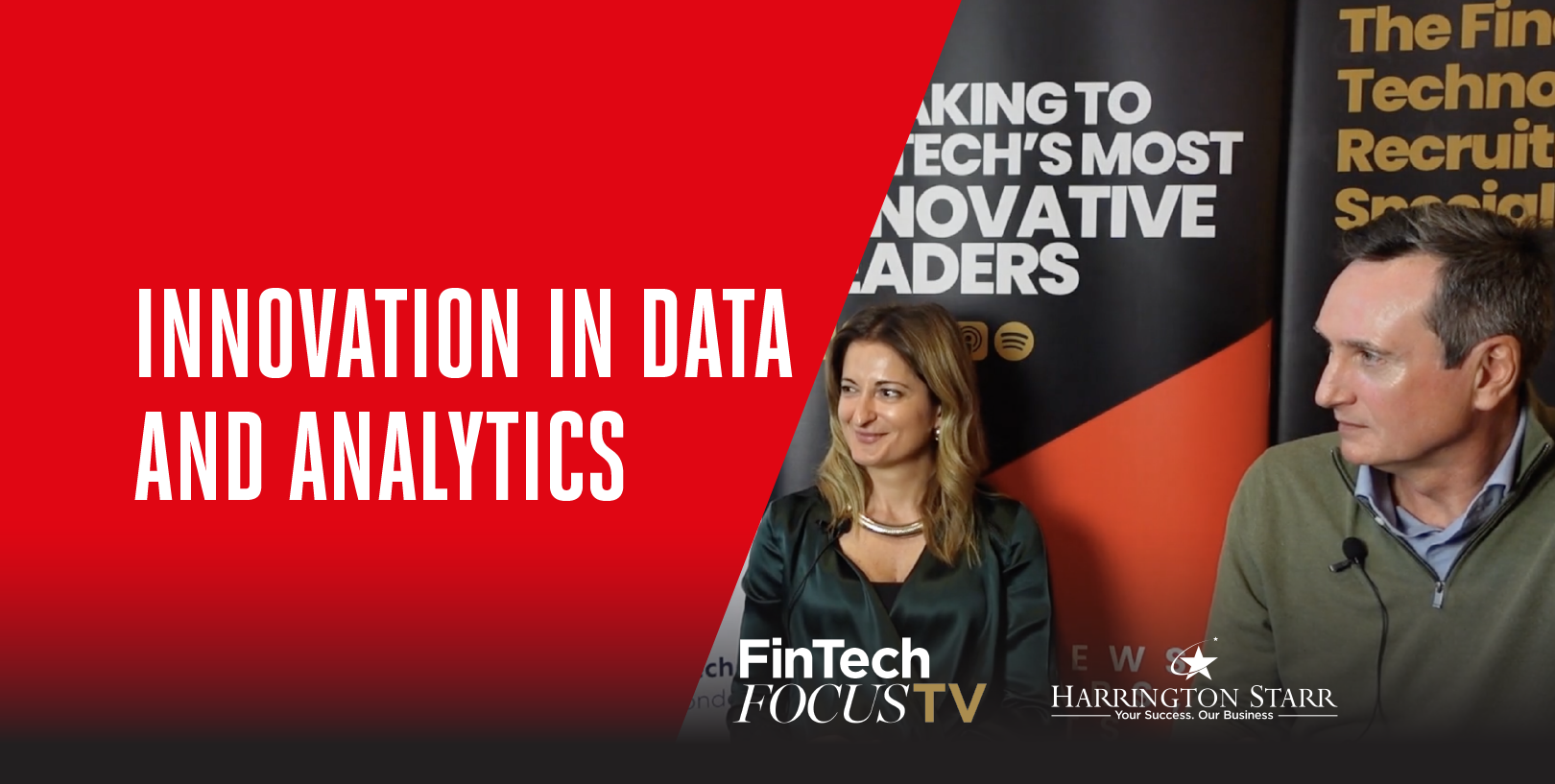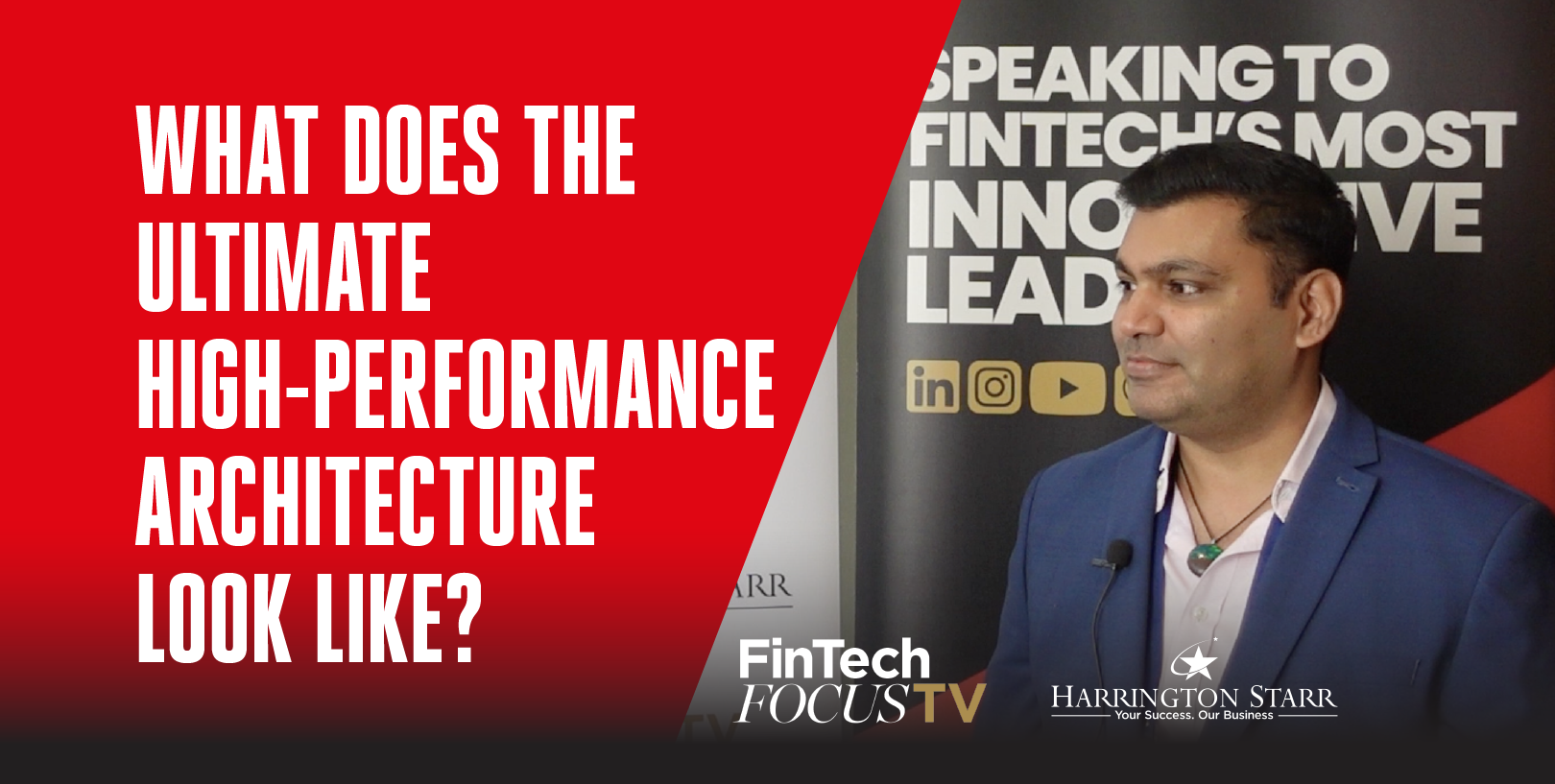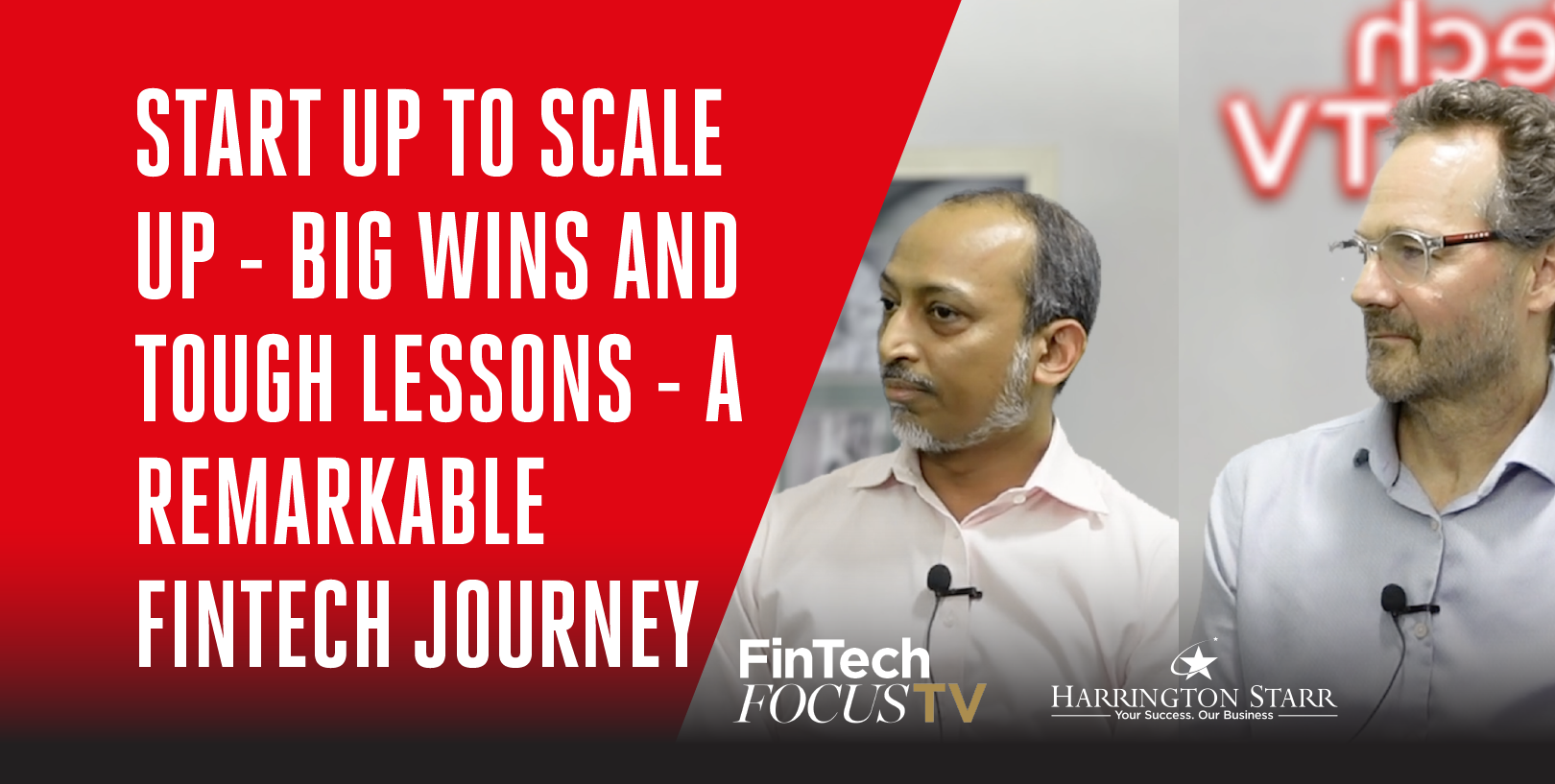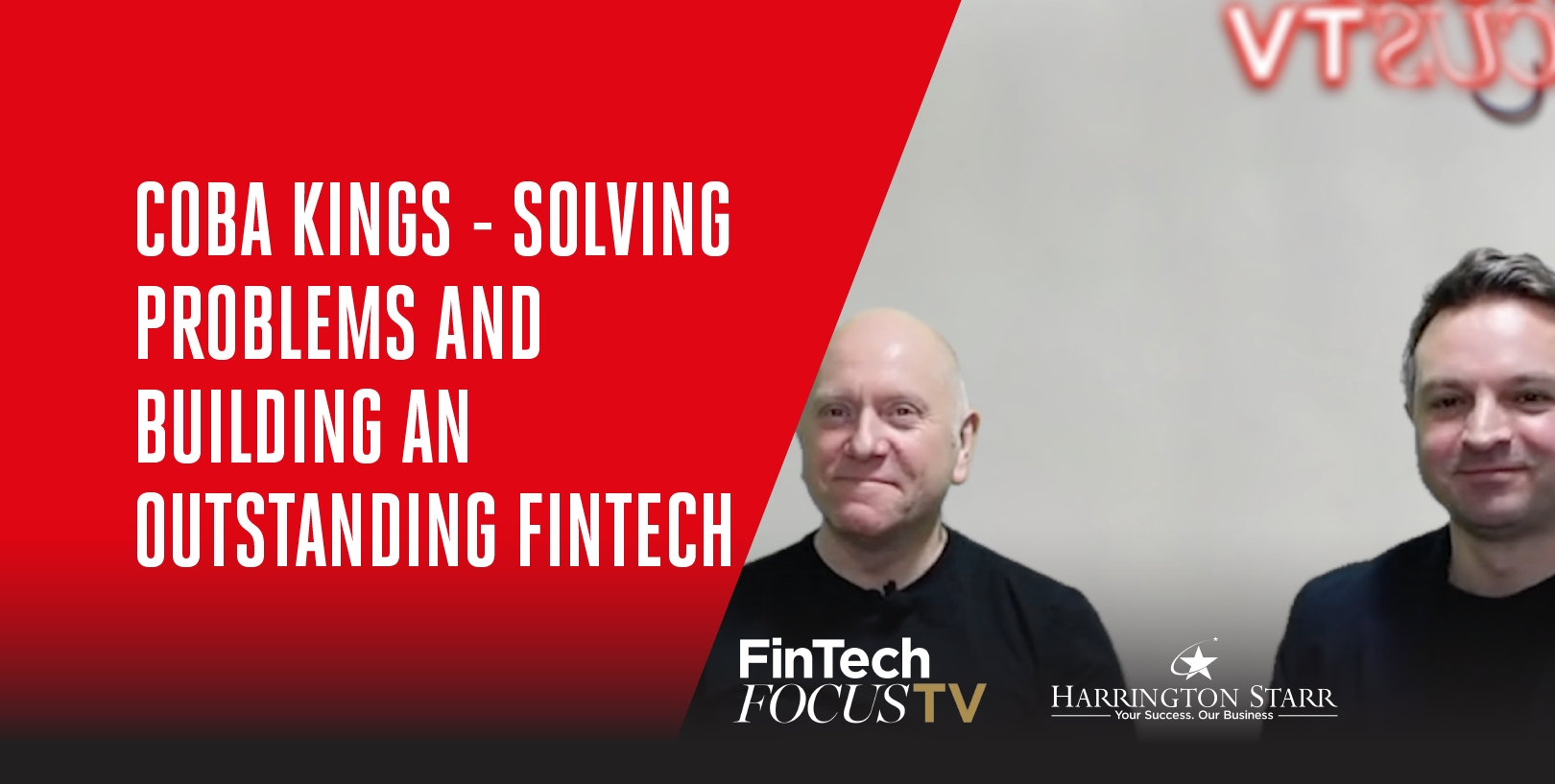Driving the Future of Trading Infrastructure
In a special episode of FinTech Focus TV, recorded live at the TradingTech Summit 2025 in Canary Wharf, host Toby Babb sits down with two of the most knowledgeable and forward-thinking voices in trading technology: Diana Stanescu, Director of Finance and Capital Markets at Keysight Technologies, and Clive Posselt, Commercial Director at Instrumentix Ltd.
This insightful discussion covers everything from the critical importance of data in modern financial markets, to how client-led innovation is shaping the future of infrastructure monitoring, and the rising value of strategic partnerships in delivering best-in-class FinTech solutions.
As a leading FinTech recruitment agency, Harrington Starr is committed to sharing thought leadership that helps professionals and businesses stay ahead of the curve in trading technology. This episode is a deep dive into key developments shaping the financial services industry and is essential viewing for those navigating the rapidly evolving world of trading infrastructure.
The Role of Keysight and Instrumentix in Capital Markets
Toby kicks off the episode with introductions, offering a warm welcome to both guests as the TradingTech Summit draws towards its conclusion. Diana Stanescu explains her position as Director of Finance and Capital Markets at Keysight Technologies, a global leader in test and measurement solutions. Formerly part of Hewlett-Packard, Keysight has evolved into an independent organisation with several divisions, one of which is dedicated to finance and capital markets.
Diana’s division focuses on three key pillars: optimising trading infrastructure, monitoring market data, and enabling high-performance trading analytics. These areas are mission-critical in an environment where milliseconds can equate to millions and where infrastructure integrity is paramount.
Clive Posselt, who has previously appeared on FinTech Focus TV, introduces Instrumentix Ltd. The company specialises in trading infrastructure monitoring and analytics, supporting a client base that spans exchanges, banks, brokers, and proprietary trading firms across the globe. Importantly, Instrumentix has formed a new partnership with Keysight Technologies—a move both guests describe as transformative for the market.
Transforming Market Data Monitoring Through Collaboration
The discussion quickly shifts to the power of partnerships and how collaboration between Keysight and Instrumentix is reshaping trading infrastructure. As Diana explains, Keysight has long been relied upon for capturing nanosecond-level market data traffic, particularly by clients in low-latency trading. However, clients noted a gap: while market data monitoring was robust, analytics related to order entry and trading performance were missing.
Rather than attempt to build these capabilities internally, Keysight chose to seek out a partner with a complementary offering. Having collaborated with Instrumentix on prior projects, the foundation for trust and synergy was already in place. This led to a strategic decision to formalise the partnership and integrate Instrumentix’s analytics capabilities directly into Keysight’s infrastructure.
Clive expands on the integration, revealing that Instrumentix’s analytics have now been embedded onto Keysight’s packet brokers. This technical milestone is an industry first and provides immense benefits to clients. Not only does it reduce the need for multiple hardware components—saving rack space and costs—but it also allows for faster, more efficient monitoring across the entire trading lifecycle. This type of infrastructure monitoring is no longer a luxury but a necessity in a competitive FinTech landscape.
Client Feedback as the Catalyst for Innovation in Financial Services
One of the most valuable takeaways from the conversation is the way in which client feedback informed and shaped the partnership between Keysight and Instrumentix. As Clive puts it, “Why did we come up with this? Because clients were asking us to.”
In today’s FinTech industry, where innovation is often driven by demand rather than speculation, listening to the voice of the customer is a strategic advantage. Both Diana and Clive explain that it wasn’t just about filling a technology gap—it was about offering a complete, reliable, and scalable solution that addressed real, pressing challenges faced by trading firms.
This client-first approach has resulted in overwhelmingly positive feedback since the launch of the joint solution. Clients appreciate the flexibility to run analytics either directly on Keysight’s packet brokers or alongside other infrastructure components. Whether firms are looking to consolidate or expand, the integration gives them the control and adaptability they need.
Moreover, the partnership enables both companies to extend their global reach. With Keysight’s scale and presence in regions like Asia, Instrumentix can now support clients across new time zones and markets that would have previously been difficult to service at the same level. The combined impact of two strong brands coming together is a clear win for customers and sets a new standard for partnership-driven innovation in FinTech.
Why Strategic Partnerships Are Driving FinTech Forward
Toby notes a growing trend across the FinTech industry: strategic partnerships are no longer rare or risky—they are a primary pathway to success. For years, financial technology has been characterised by a competitive mindset where companies sought to build everything in-house and protect proprietary solutions. However, today’s market demands agility, speed, and specialisation.
Diana echoes this sentiment. She explains that while internal development can seem appealing, it is often costly, time-consuming, and uncertain. When trusted, mature solutions already exist in the market, collaboration becomes the smarter path. A strong partnership enables companies to bring well-tested, reliable products to clients faster, with better support and less risk.
This approach reflects the broader reality of FinTech today. From challenger banks to high-frequency trading firms, companies are increasingly choosing collaboration over competition. By combining strengths and removing silos, they can deliver better experiences, meet compliance requirements, and evolve with client needs—all while maintaining a focus on what they do best.
Understanding the Value of Data in Today’s Trading Environments
A recurring theme throughout the episode is data—how it’s captured, analysed, and ultimately used to drive performance. Diana offers a valuable perspective, noting that while the sheer volume of data available has increased dramatically thanks to cloud technologies and AI, the challenge now lies in ensuring that the data is both relevant and high quality.
She stresses that having all the data in the world is meaningless if it lacks specificity or integrity. Poor-quality data can not only waste time and resources but also lead to wrong decisions that negatively impact trading outcomes. In an industry where precision is everything, data quality becomes just as important as data volume.
Toby concurs, especially in the context of artificial intelligence. As he points out, AI is only as good as the data it feeds on. Without reliable, clean, and relevant data inputs, even the most sophisticated AI models will fail to deliver actionable insights. For firms investing in AI to stay competitive, ensuring strong data governance and monitoring is essential.
Clive adds that his clients are not only asking for low-latency analytics but also for tools that can enhance customer experience and system reliability. This shift in focus—from speed to quality—reflects changing expectations in the market. Firms are recognising that true performance is measured not just in milliseconds but in consistency, usability, and customer satisfaction.
Forecasting the Future of FinTech in 2025
Looking ahead to the remainder of 2025, both guests offer valuable insights into emerging trends that are likely to shape the FinTech landscape. Diana identifies regulation—specifically DORA (the Digital Operational Resilience Act)—as one of the most significant forces impacting the industry. She explains that DORA is already generating anxiety and uncertainty around compliance, especially in relation to market data management.
As firms grapple with these evolving regulatory frameworks, infrastructure monitoring and operational resilience are becoming more than technical considerations—they are board-level concerns. Companies must prepare now for a future where accountability and auditability will be as important as speed and scale.
AI is another focal point for Diana, who observes that the technology is still very much in the experimental stage. While its potential is enormous, the financial services industry is still working out how best to use it. The next 12 months are likely to reveal more use cases, more refinement, and, ultimately, more integration of AI into trading and operations platforms.
Clive offers an economic perspective, pointing to recent data that shows a 14% drop in European equities wallet size last year, with only a modest recovery this year. As trading firms face tighter margins, many are looking for new ways to create value. One such method is through customer service and experience.
This is where infrastructure monitoring and analytics become indispensable. Clients are demanding more transparency, better service quality, and fewer system failures. Clive notes that firms not traditionally concerned with latency are now showing increased interest in tools that enhance stability and ensure seamless user experiences. It’s a telling sign that infrastructure quality is no longer just a “tech issue” but a core business priority.
Redefining What Quality Means in Financial Technology
As the episode concludes, Toby reflects on the broader conversations happening at TradingTech Summit 2025. Amongst the industry’s brightest minds, a few recurring ideas stand out: the need for greater efficiency, the push for reduced friction in digital products, and a redefined concept of quality.
Diana agrees, observing that even amongst low-latency traders, the conversation is shifting. Clients still want speed, especially in the context of AI and massive data processing, but they also want meaningful, actionable, and reliable data. For firms outside the low-latency niche, quality of service is even more vital, especially when it comes to customer-facing platforms.
Clive concurs and highlights that trading firms today need tools that can evolve with their businesses. They want flexible solutions that deliver not just speed but stability, accuracy, and customer confidence. The partnership between Keysight and Instrumentix aims to do exactly that—provide end-to-end monitoring and analytics that meet the high expectations of modern financial services firms.
Conclusion: End-to-End Innovation Built on Data, Trust, and Demand
Toby thanks both guests for joining him and concludes the episode by acknowledging the value of their insights. What makes this conversation particularly powerful is how it highlights the intersection of technology, regulation, and customer needs—all central themes in FinTech today.
The collaboration between Keysight Technologies and Instrumentix is not just a technical integration; it’s a case study in how to build partnerships that deliver real impact. It was born from client feedback, executed through shared vision, and continues to evolve based on market demands.
At Harrington Starr, we believe that the future of financial services will be built by those who listen, adapt, and collaborate. Whether you're hiring top talent in FinTech or searching for your next career opportunity, understanding the forces that drive innovation—like the ones discussed in this episode—is crucial.
Stay connected with FinTech Focus TV for more insights from the people shaping financial technology and infrastructure. As always, Harrington Starr is proud to bring you these conversations and support the FinTech ecosystem as it continues to grow.






